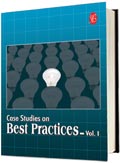Implementation of Odd-Even Scheme for Private Cars in Delhi – A Pilot Study on Pollution Control
|
INTRODUCTION: On December 4, 2015, the Delhi government led by chief minister, Arvind Kejriwal (Kejriwal), announced that the odd-even rule would be implemented from January 1, 2016, for private cars in Delhi, the capital city of India, as a pilot study for a period of 15 days. According to the announcement, private vehicles would be allowed across the city based on their registration numbers. For example, if a vehicle’s registration number ended with an odd digit, it would be allowed on the roads on odd dates such as January 1, 2016, while an even number vehicle would be allowed on even dates .. |
|
|
| For Case Books
Click Here >> For Case eBooks Click Here >> |
||
BACKGROUND: Delhi’s battle against air pollution started in 2001 when the Supreme Court expressed shock at the pollution levels in the city. It then ordered public buses, taxis, and auto rickshaws to switch from diesel power to compressed natural gas..
ODD-EVEN RULE IMPLEMENTED: With the alarming levels of air pollution in the city, the Delhi High directed the Central and State governments on December 3, 2015, to come up with a plan to control the pollution rate. The Court directed the government to come up with a list of measures by December 21, 2015, to curb pollution. On December 4, 2015, the Delhi government led by Kejriwal proposed the ‘Odd-Even Rule’ for private cars. The rule was proposed to be implemented from January 1, 2016, as a pilot study for a period of 15 days. As per the rule, private vehicles would be allowed to ply across the city based on their registration numbers. For example, if a vehicle’s registration number ended with an odd digit, it would be allowed on the road on January 1, 2016, while a vehicle whose registration number ended with an even number would be allowed on January 2, and so on. The government thought that by implementing this rule and restricting the number of cars on the roads, pollution levels could be brought down..
Related Case Studies
- » US Financial Crisis: The Effects on UK Banks
- » US Financial Crisis: US Banking Sector at Crossroads?
- » US Financial Crisis: Morgan Stanley as a Universal Bank
- » US Subprime Mortgage Market (A): Global Credit Crunch and Crisis at Northern Rock
- » US Subprime Mortgage Market (B): Global Credit Crunch and Crisis at Northern Rock
- View all Leadership case studies »
Recently Bought Case Studies




